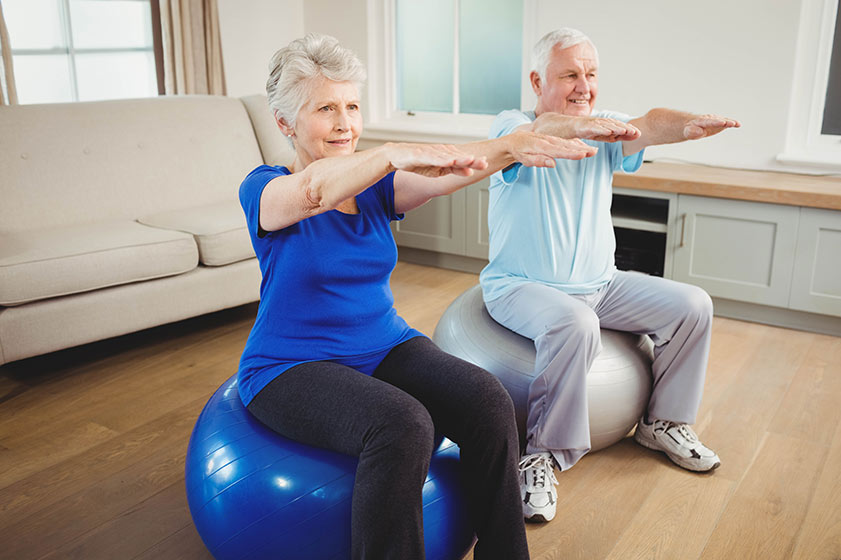Exercise plays a vital role in maintaining your physical and mental health. It’s even more important if you’re an older adult. An active lifestyle in retirement brings many benefits including better blood circulation and stronger immunity. If you don’t have the habit of working out in the past, it’s never too late to begin exercising regularly. Maintaining a healthy lifestyle in your retirement years brings you far more benefits than you can imagine.
Better Bone Health
Physical activity strengthens your bones. Weight-bearing exercises like yoga or even walking stimulate the growth of bone cells and make your bones stronger. Exercising for around 30 minutes a day helps you maintain bone strength. If you haven’t been exercising for a long time, begin with something simple like a walk in the park. Give yourself enough time to build up your stamina and momentum.
Better Sleep
Inactive persons may have more difficulty getting good quality sleep. Regular exercise promotes better sleep in several ways. Endorphins released during exercise trigger positive feelings and can aid you in fighting off anxiety. It alleviates your mind from stress so you can have better sleep at night. Exercise also tires you out and helps you to fall asleep faster.
Better Cardiovascular Health
Exercise lowers your odds of developing heart diseases. A combination of cardio and strength training can boost your overall heart health and improve blood circulation. Although underlying heart conditions do not disappear with exercise, you can still reap numerous health benefits from exercising regularly.
Maintains Your Body Weight
Exercise is helpful in weight management. Extra weight can lead to obesity and increase your risk of diseases like type 2 diabetes and high blood pressure. Furthermore, your metabolism decreases with age and it may be harder to burn off calories if you do not exercise. Hence it’s important to engage in physical activities to stimulate your metabolism and burn more calories. Other than exercising, you should also reduce your intake of sugar and salt. Restrict your consumption of sweetened drinks and chips, and stock up on fresh fruits and vegetables instead.
Boosts Your Social Wellness
You may find it harder to meet new people and socialize during your retirement years. Hence, joining an exercise community or workout group is one way to make new friends. Whether it’s a cycling group or fitness class, you can get to meet other like-minded people in your neighborhood. Interacting with others while exercising can have a positive impact on your social wellness.
Boosts Your Mental Health
A healthy lifestyle is often associated with lower risks of depression and stress. Studies reveal that those who exercise frequently benefit from better mental health and emotional well-being. Higher activity levels could also delay the progression of Alzheimer’s disease. You should also consume brain-healthy food that is packed with nutrients. Fruits, leafy vegetables, lean meat, and beans are some nutrient-rich foods that you should add to your diet.
Reduces Hypertension
If you’re diagnosed with hypertension, regular exercise can help decrease your blood pressure. It’s also effective in bringing down stress levels and reducing your risk of developing cardiovascular problems. Establish a regular exercise routine today and notice the difference it can bring to your health!








